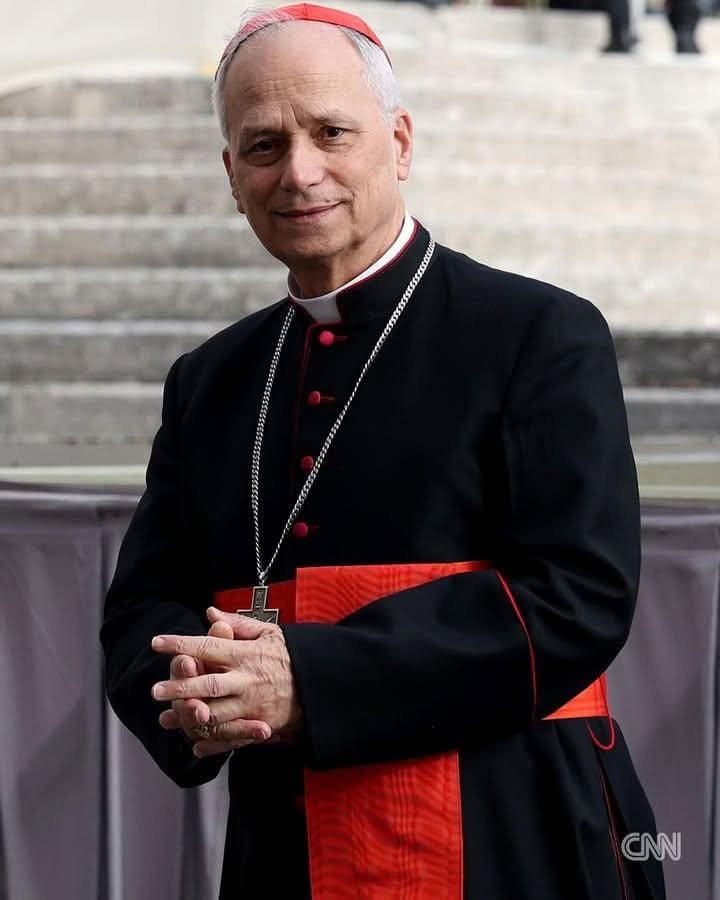CELEBRITY
The New Pope is Revealed as Robert Prevost of the US, the First American Pontiff in History. He’ll Be Known as Pope Leo XIV

In a historic and unexpected turn of events, the College of Cardinals has elected Robert Prevost of the United States as the 268th pope of the Roman Catholic Church. He will assume the papal name Pope Leo XIV, becoming the first American in history to hold the position of Supreme Pontiff.
The white smoke billowed from the Sistine Chapel chimney at approximately 6:37 p.m. local time, signaling to the world that a new pope had been chosen. Shortly thereafter, Cardinal Jean-Pierre Ricard, the senior cardinal deacon, appeared on the central balcony of St. Peter’s Basilica and proclaimed the traditional words: “Habemus Papam!”—”We have a pope!”
Cheers erupted across St. Peter’s Square as the 69-year-old Prevost stepped onto the balcony wearing the papal white cassock for the first time, smiling warmly and blessing the crowd.
“I accept this call with humility and profound trust in the Lord,” Pope Leo XIV said in Italian. “I ask for your prayers as I begin this journey in service of the Church and the world.”
A Historic First for the United States
Born in Chicago, Illinois, Robert Francis Prevost was ordained a priest in 1982 and served in various leadership roles, including as bishop of Chiclayo, Peru, and later as prefect of the Dicastery for Bishops, one of the Vatican’s most powerful positions.
Known for his pastoral sensibility, administrative skill, and deep theological grounding, Prevost had often been mentioned as a potential candidate, though few believed an American would be selected given the Church’s global sensitivities.
“This is a deeply significant moment,” said Church historian Dr. Elena Costa. “An American pope reflects not only the changing demographics of global Catholicism but also a desire for strong, pragmatic leadership rooted in both tradition and modern understanding.”
A New Direction for the Church?
Pope Leo XIV succeeds Pope Francis, who resigned citing health reasons after 12 years of transformative leadership. Francis’s papacy was marked by progressive outreach, interfaith dialogue, and an emphasis on social justice. Observers are now closely watching to see how Leo XIV will steer the Church forward.
In his first address, Pope Leo XIV emphasized unity, compassion, and healing—especially in a time marked by global conflict, social upheaval, and internal Church challenges.
“The Church must always be a beacon of mercy, not judgment; of peace, not division,” he said. “Let us walk together, as brothers and sisters, toward the light of Christ.”
Reactions Pour In
Catholics and leaders around the world have responded swiftly to the announcement. U.S. President Emily Thompson called the election “a moment of pride and reflection for millions of American Catholics,” and pledged to work alongside the Vatican on global humanitarian and climate initiatives.
Meanwhile, Catholic communities in Latin America, Africa, and Asia expressed hope that Pope Leo XIV will continue efforts to decentralize the Church and support the growing Catholic populations in the Global South.
Looking Ahead
While the symbolism of an American pope is monumental, Vatican analysts caution against reading the election purely in geopolitical terms.
“The choice of Pope Leo XIV likely reflects a desire for balance—someone who can uphold Church doctrine while engaging credibly with an increasingly secular and fractured world,” said Father Antonio Morandi, a Rome-based theologian.
Pope Leo XIV is expected to celebrate his formal inauguration Mass in St. Peter’s Square later this week, marking the official start of a new chapter in Catholic history.












